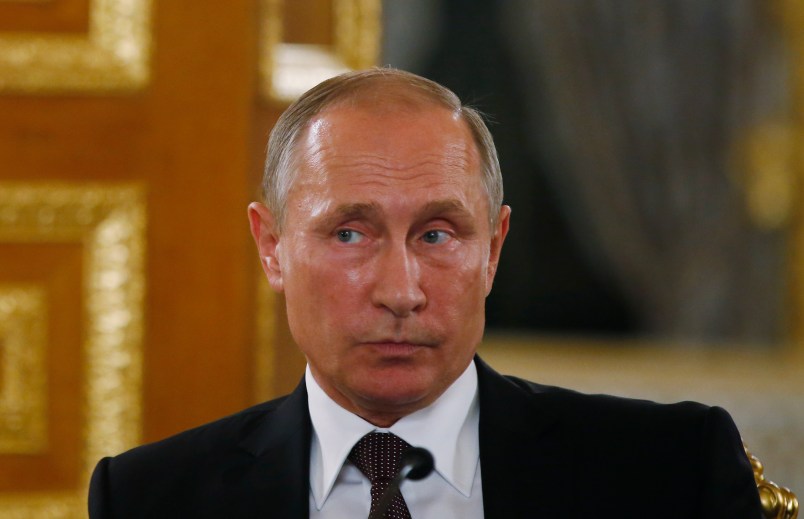Voter databases and software systems in an overwhelming number of states—39 to be exact—were targeted by Russian cyberattacks over the summer and fall of 2016, Bloomberg News reported Tuesday.
That number, and Bloomberg’s revelation that hackers attempted to delete or alter voter data in Illinois and successfully accessed a campaign finance database in another state, indicates that Russia’s election interference was even more vigorous than has previously been reported.
It builds on a NSA document leaked to The Intercept and made public last week that offered hard evidence that Russian meddling involved not only the strategic hacking and distribution of campaign communications, but efforts to interfere with America’s election infrastructure.
Three people that Bloomberg describes as having “direct knowledge” of the federal Russia probe said that the hackers gained access to software intended for poll workers to use on Election Day as well as to Illinois’ entire state voter database.
They did not alter vote tallies, however, as various intelligence officials have testified in congressional hearings. One anonymous U.S. official posited to Bloomberg that this was because Russia only accessed American voting systems months before an Election Day, lacking the time needed to master a complex network that varies between thousands of local jurisdictions.
Former President Barack Obama attempted to intervene last October, according to Bloomberg, using the so-called “red phone” secure messaging channel established between Russia and the U.S. to deescalate the threat of cyberattacks.
Putin said only that he would look into the matter, and has categorically denied that the Russian government took any steps to interfere in the U.S. election. He allowed earlier this month that “patriotic individuals” could have carried out cyberattacks independently.
U.S. intelligence officials have cautioned that Russian interference continues, and that the 2018 and 2020 elections could very well be compromised by their efforts.
“They will be back,” former FBI Director James Comey told the Senate Intelligence Committee last week.










